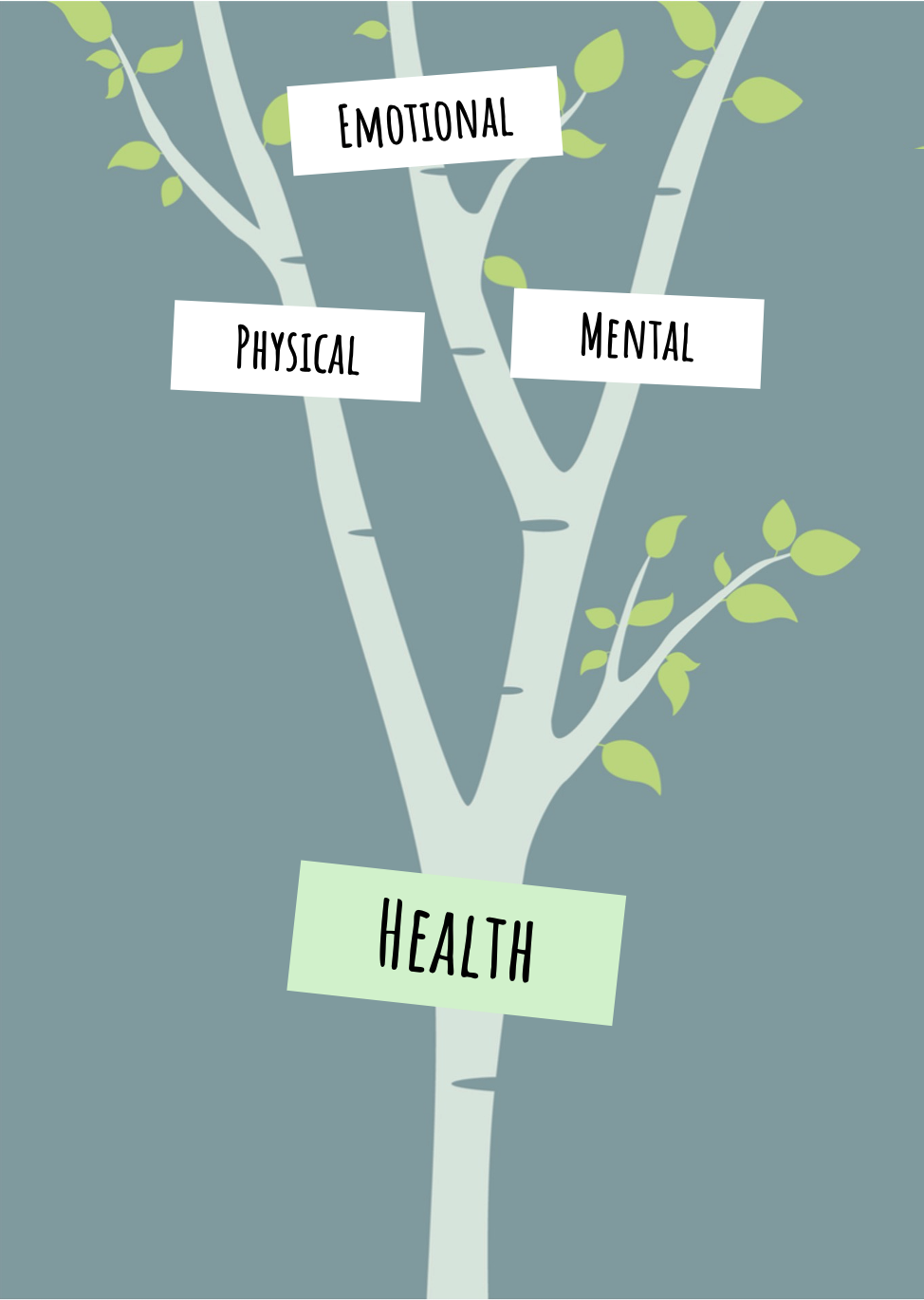Health Branches
Making good choices about physical, emotional, and mental health is essential for youth as it lays a strong foundation for resilience throughout their lives. Engaging in regular physical activity, for example, not only promotes physical fitness but also boosts mood and reduces stress levels. Nutrition plays a crucial role as well; a balanced diet supports cognitive function and helps with emotional regulation. When young people prioritize their physical health, they develop habits that can lead to increased energy levels and improved self-esteem, both of which empower them to face challenges more effectively.
Emotional and mental health are equally important in fostering resilience. Youth who learn to express and manage their emotions are better equipped to navigate life’s ups and downs. Developing coping strategies and a support network can enhance their ability to bounce back from setbacks. Furthermore, mental health awareness encourages young people to seek help when needed, breaking the stigma that often surrounds these issues. By making informed choices in all aspects of their health, youth can cultivate the resilience necessary to tackle adversity and build a fulfilling future.
Physical Health
DEVELOPING GOOD PHYSICAL HEALTH HABITS INCREASE YOUTH RESILIENCE
Developing good physical health habits plays a crucial role in enhancing youth resilience by fostering both mental and emotional well-being. Regular physical activity is known to boost mood and reduce feelings of anxiety and depression through the release of endorphins, which are natural mood lifters. Engaging in exercise helps youth to manage stress more effectively and cope with challenges, creating a foundation for resilience. When young people incorporate activities such as sports, dance, or even walking into their daily routine, they not only improve their physical fitness but also build a sense of accomplishment and self-discipline.
Moreover, proper nutrition significantly impacts mental clarity and emotional stability. A balanced diet rich in vitamins, minerals, and antioxidants supports brain health, which is essential for cognitive functions and emotional regulation. When youths consume nutritious foods, they are more likely to maintain high energy levels and improve their concentration, allowing them to tackle academic and personal challenges more adeptly. This improved cognitive function contributes to a greater ability to adapt to life’s ups and downs, reinforcing their resilience in the face of adversity.
Additionally, establishing healthy sleep patterns is integral to developing resilience. Quality sleep is necessary for recovery, both physically and mentally. Adequate rest enhances learning, memory, and emotional regulation. When youth prioritize good sleep hygiene, they not only perform better academically but also cultivate an ability to bounce back from setbacks. Together, these habits create a supportive environment that encourages youths to face difficulties with a proactive mindset, ultimately shaping a more resilient individual capable of navigating life's challenges.
MENTORING ACTIVITIES
Goal Setting Session: Engage in a conversation to identify personal health goals. Discuss factors such as weight management, fitness levels, sleeping habits and nutritional choices. Create a tailored plan for achieving these goals and set measurable milestones to track progress.
Fitness Assessment: Conduct a fun physical assessment that evaluates current fitness levels. This could include measurements of strength, flexibility, and endurance through basic exercises or fitness tests. Use the results to tailor a personalized workout plan that targets areas for improvement.
Nutritional Discussion: Participate in a guided session focused on nutrition. Discuss the components of a balanced diet, how to read food labels, and making healthier food choices. Bring some parent-approved food to illustrate and make it fun.
Outdoor Activity Planning: Take a walk on a trail at the ranch or do something else outdoors. Discuss the benefits of engaging with nature for physical and mental health. Use this time to encourage consistent physical activity and explore local parks or trails.
DISCUSSION QUESTIONS
What does physical health mean to you, and why do you think it's important?
How do you currently feel about your level of physical activity?
What types of exercise do you enjoy, and how often do you participate in them?
Are there any barriers that prevent you from being more physically active?
How would you describe your daily eating habits, and do you think they support your physical health?
How would you describe your nightly sleeping habits? When do you go to bed and wake up?
How do you typically manage stress, and do you think it affects your physical health?
Have you set any physical health goals for yourself? If so, what are they?
Who do you look up to as a role model for maintaining physical health, and what do you admire about their habits?
What steps can you take in the next week to improve your physical health?
Emotional Health
DEVELOPING GOOD EMOTIONAL HEALTH HABITS INCREASE YOUTH RESILIENCE
Developing good emotional health habits is crucial for enhancing youth resilience, as it helps young people effectively manage stress and navigate challenges. By fostering a strong sense of emotional awareness, youth can better understand their feelings and the factors that contribute to their emotional states. This self-awareness promotes a proactive approach to mental health, enabling young individuals to identify when they need support or coping strategies, ultimately leading to healthier responses to adversity.
Good emotional health habits, such as practicing mindfulness, engaging in positive self-talk, and cultivating strong relationships, instill a sense of stability and control in youths. These practices equip them with the tools necessary to confront difficulties with confidence and adaptability. When young individuals learn to express their emotions constructively and seek help when needed, they build a support network that contributes to their resilience. The ability to rely on trusted peers and mentors during tough times can lessen feelings of isolation and despair, further reinforcing an individual’s capacity to bounce back from setbacks.
Moreover, developing emotional health habits encourages youth to embrace a growth mindset, viewing challenges as opportunities for learning and development. This perspective is fundamental to resilience, as it shifts the focus from failure to growth. Resilient youth learn that setbacks do not define them; instead, they can extract valuable lessons from their experiences. By integrating these emotional health practices into their daily lives, young people can cultivate resilience that will serve them well throughout their lives, enabling them to thrive despite obstacles.
MENTORING ACTIVITIES
Journaling Together: Encourage your mentee to express their emotions by writing in a journal. This can include prompts about their feelings, experiences, or reflections on daily events.
Mindfulness Exercises: Lead mindfulness or meditation sessions to help the youth focus on the present, reduce stress, and enhance emotional awareness.
Art Therapy: Engage in creative activities such as painting or drawing to allow the youth to express emotions non-verbally.
Role-Playing Scenarios: Practice role-playing different social situations to help the youth develop emotional responses and communication skills.
Discussion of Coping Strategies: Share and discuss various coping strategies for dealing with stress, anxiety, or difficult emotions.
Exploring Emotions Through Literature: Read and analyze parent-approved books or short stories that illustrate emotional health themes, discussing characters' feelings and choices.
Physical Activities: Participate in outdoor activities at the ranch, discussing how physical health impacts emotional well-being.
Goal Setting: Work on setting personal goals related to emotional health, such as practicing gratitude or improving communication skills.
Creating a Feelings Chart: Develop a feelings chart together to help the youth identify and articulate their emotions more effectively.
Weekly Check-Ins: Establish consistent one-on-one check-ins to discuss feelings and experiences, fostering a safe space for open dialogue.
DISCUSSION QUESTIONS
What does emotional health mean to you, and why do you think it is important in your life?
Can you describe a recent situation where your emotions affected your decisions or interactions with others?
How do you currently manage stress or difficult emotions when they arise?
What activities or practices help you feel more balanced and emotionally healthy?
How do you think maintaining good emotional health can impact your relationships with family and friends?
Are there any barriers you face in maintaining your emotional health, and how might you overcome them?
What techniques have you heard of or tried to express your feelings in a healthy way?
How do you think recognizing and understanding your emotions can benefit you in school or work?
What role does self-care play in your emotional health, and what practices do you engage in for self-care?
How can you reach out for support when you are feeling overwhelmed, and who in your life can you approach for help?
Mental Health
DEVELOPING GOOD MENTAL HEALTH HABITS INCREASE YOUTH RESILIENCE
Developing good intellectual and problem-solving habits in youth fosters resilience by equipping them with the skills necessary to navigate challenges and setbacks. When young individuals engage in critical thinking and learn to analyze problems from multiple angles, they become more adept at finding effective solutions. This process encourages a growth mindset, wherein they view challenges as opportunities for learning rather than insurmountable obstacles. The ability to adapt to new situations and think creatively under pressure directly contributes to their overall resilience.
Moreover, effective problem-solving habits instill confidence in youth. When they approach difficulties methodically and recognize their capacity to overcome various situations, they build a strong sense of self-efficacy. This belief in their abilities serves as a buffer against stress and adversity. With each problem they tackle successfully, they reinforce their understanding that they can bounce back from hardships, further strengthening their resilience.
Additionally, cultivating intellectual curiosity stimulates lifelong learning and adaptability. Youth who are encouraged to ask questions, seek knowledge, and engage in thoughtful discussions are better prepared for unexpected circumstances. This ongoing quest for understanding fosters a sense of agency, empowering them to take initiative in their lives. As they develop the tools to confront and solve problems, they are more likely to embrace resilience as a vital part of their personal development.
MENTORING ACTIVITIES
Puzzle Solving: Work together on different types of puzzles, such as logic puzzles or jigsaw puzzles, to encourage critical thinking and patience.
Case Studies: Analyze real-life scenarios or case studies that require problem-solving skills, discussing the factors involved and possible solutions.
Role-Playing: Engage in role-playing exercises where the youth must navigate a challenging situation and explore various outcomes based on their choices.
Creative Storytelling: Collaborate on creating a story that involves a character facing obstacles, prompting discussions about decision-making and resolution strategies.
Debate Topics: Choose a current event or controversial issue for a structured debate to help the youth practice analyzing varying perspectives and formulating arguments.
Mind Mapping: Create simple mind maps for different problems, visually organizing thoughts and potential solutions to enhance understanding and idea generation.
Science Experiments: Conduct simple science experiments that require hypothesis formation, execution, and analysis of results to illustrate the scientific method.
Community Engagement: Identify a local community issue, brainstorm solutions together, and develop a plan to address it, reinforcing collaborative problem-solving.
Skill-Building Games: Play strategy board games or video games that necessitate tactical thinking and decision-making, discussing the strategies employed during gameplay.
DISCUSSION QUESTIONS
What does mental analysis mean to you in the context of decision-making?
How do you define problem-solving skills in your daily life?
Can you recall a situation where mental analysis significantly impacted your outcome? What happened?
In what ways do you enhance your problem-solving abilities when faced with challenges?
How do you believe mental analysis contributes to personal growth and self-awareness?
What role does critical thinking play in your problem-solving process?
How important is it for you to reflect on past decisions, and how does this relate to mental analysis?
Are there specific techniques you use to improve your mental analysis skills? If so, what are they?
How do you think strong problem-solving skills affect your professional life?
What long-term benefits have you experienced from developing your mental analysis and problem-solving abilities?

